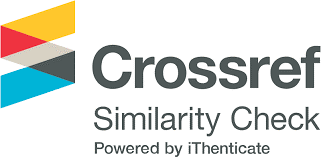A Front-End Bridgeless Power Factor Corrector For Electric Vehicle Battery Chargers
DOI:
https://doi.org/10.18618/REP.2017.4.2707Keywords:
AC-DC converter, Battery Chargers, Bridgeless Boost Converter, Electric Vehicle, Power Factor Corrector (PFC)Abstract
In this paper, a bridgeless power factor corrector converter is suggested for electric vehicle battery chargers. The converter is applicable as a front-end stage for residential charging, i.e. automotive level 1. It is presented a steady state operation analysis for the proposed converter. It operates in current continuous conduction mode controlled by a voltage outer loop and a current inner loop control strategy. Experimental results were performed for a 1 kW prototype, considering 220 V grid voltage, 400 V dc output voltage, 70 kHz switching frequency, and the control system implemented by the UCC28070. The experimental results are satisfactory, which demonstrate a peak efficiency of 98.4% at half load, and features high efficiency from light load to full load. Additionally, the input current THD is less than 5% from half to full load and the power factor is higher than 0.99 from half to full load.
Downloads
References
M. Yilmaz, P. T. Krein, "Review of Battery Charger Topologies, Charging Power Levels, and Infrastructure for Plug-In Electric and Hybrid Vehicles," IEEE Transactions on Power Electronics, vol. 28, no. 5, pp. 2151-2169, May 2013.https://doi.org/10.1109/TPEL.2012.2212917 DOI: https://doi.org/10.1109/TPEL.2012.2212917
R. Mayer, A. Péres, S. V. G. Oliveira, "Conversor CC-CC Multifásico Bidirecional Em Corrente Não Isolado Aplicado A Sistemas Elétricos De Tração De Veículos Elétricos E Híbridos", Eletrônica de Potência, vol. 20, no. 3, pp. 311-321, Aug. 2015.https://doi.org/10.18618/REP.2015.3.2521
R. Mayer, "Conversor CC-CC multifásico bidirecional em corrente não isolado aplicado a sistemas elétricos de tração de veículos elétricos e híbridos leves". Dissertação de mestrado, FURB, Blumenau, Brazil, 2014. DOI: https://doi.org/10.18618/REP.2015.3.2521
F. Musavi, M. Edington, W. Eberle, W. G. Dunford, "Evaluation and efficiency comparison of front end AC-DC plug-in hybrid charger topologies", IEEE Transactions on Smart Grid, vol. 3, no. 1, pp. 413-421, Mar. 2012.https://doi.org/10.1109/TSG.2011.2166413 DOI: https://doi.org/10.1109/TSG.2011.2166413
L. Petersen, M. Andersen, "Two-stage power factor corrected power supplies: The low component-stress approach", in Proc. of Applied Power Electronics Conference and Exposition (APEC), vol. 2, pp. 1195-1201, 2002.
S. Haghbin, K. Khan, S. Lundmark, M. Alaküla, O. Carlson, M. Leksell, O. Wallmark, "Integrated chargers for EV's and PHEV's: examples and new solutions", in Proc. of International Conference on Electrical Machines (ICEM), XIX International Conference on, pp. 1-6, 2010.https://doi.org/10.1109/ICELMACH.2010.5608152 DOI: https://doi.org/10.1109/ICELMACH.2010.5608152
M. Grenier, M. H. Aghdam, T. Thiringer, "Design of on-board charger for plug-in hybrid electric vehicle", in Proc. of Power Electronics, Machines and Drives (PEMD), pp. 1-6, 2010.https://doi.org/10.1049/cp.2010.0101 DOI: https://doi.org/10.1049/cp.2010.0101
B. Singh, B. N. Singh, A. Chandra, K. Al-Haddad, A. Pandey, D. P. Kothari, "A review of three-phase improved power quality AC-DC converters", IEEE Transactions on Industrial Electronics, vol. 51, no. 3, pp. 641-660, Jun. 2004.https://doi.org/10.1109/TIE.2004.825341 DOI: https://doi.org/10.1109/TIE.2004.825341
M. A. Fasugba, P. T. Krein, "Gaining vehicle-to-grid benefits with unidirectional electric and plug-in hybrid vehicle chargers", in Proc. of Vehicle Power and Propulsion Conference (VPPC), pp. 1-6, 2011.https://doi.org/10.1109/VPPC.2011.6043207 DOI: https://doi.org/10.1109/VPPC.2011.6043207
C. Botsford, A. Szczepanek, "Fast Charging vs. Slow charging: Pros and cons for the new age of electricvehicles", in Proc. of Electric Vehicle Symposium, 2009.
F. J. M. De Seixas, J. P. R. Balestero, C. M. De Seixas, F. L. Tofoli, G. V. T. Bascopé, "Bridgeless Boost PFC Converter Using the Threestate Switching Cell", Eletrônica de Potência, vol. 17, no. 2, pp. 513-520, May 2012.https://doi.org/10.18618/REP.2012.2.513520 DOI: https://doi.org/10.18618/REP.2012.2.513520
D. C. Martins, C. S. P., A. L. Fuerback, C. B. Nascimento, A. J. Perin, "AC-DC Serial-interleaved Boost Converter Applied in a Single-stage PFC", Eletrônica de Potência, vol. 18, no. 4, pp. 1170-1179, Nov. 2013.https://doi.org/10.18618/REP.2013.4.11701179 DOI: https://doi.org/10.18618/REP.2013.4.11701179
M. L. Heldwein, T. K. Jappe, R. R. Polla, A. Fuerback, T. B. Soeiro, R. Andrich, "An FPGA based Single-phase Interleaved Boost-type PFC Rectifier Employing GaN HEMT Devices", Eletrônica de Potência, vol. 19, no. 4, pp. 414-422, Nov. 2014.https://doi.org/10.18618/REP.2014.4.414422 DOI: https://doi.org/10.18618/REP.2014.4.414422
A. F. de Souza, I. Barbi, "High power factor rectifier with reduced conduction and commutation losses," in Proc. of International Telecommunication Energy Conference (INTELEC), pp. 5, 1999.https://doi.org/10.1109/INTLEC.1999.794044 DOI: https://doi.org/10.1109/INTLEC.1999.794044
F. Musavi, M. Edington, W. Eberle, W. G. Dunford, "Energy Efficiency in Plug-in Hybrid Electric Vehicle Chargers: Evaluation and Comparison of Front End AC-DC Topologies", IEEE Transactions on Smart Grid, vol. 2, no 3, pp. 273-280, Sep. 2011.https://doi.org/10.1109/ECCE.2011.6063780 DOI: https://doi.org/10.1109/ECCE.2011.6063780
Fariborz Musavi, Investigation of high performance single-phase solutions for AC-DC power factor corrected boost converters. PhD thesis, The University of British Columbia, VANCOUVER, CANADÁ, 2011.https://doi.org/10.1109/ECCE.2010.5617709 DOI: https://doi.org/10.1109/ECCE.2010.5617709
Texas Instruments, "Application Review SLUA479B - UCC28070 300-W Interleaved PFC Pre-Regulator Design Review", 2016.[Online]. Available in: http://www.ti.com/.
Texas Instruments, "Datasheet PFC CCM controller UCC28070", 2016.[Online]. Available in: http://www.ti.com/.
Downloads
Published
How to Cite
Issue
Section
License
Copyright (c) 2017 Revista Eletrônica de Potência

This work is licensed under a Creative Commons Attribution 4.0 International License.















